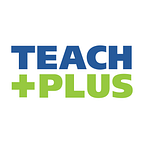All Students Thrive in Inclusive Environments
By Rebecca Zirnheld
I came to the classroom 31 years ago expecting to find a typical student. Instead I found George. He could read, upside down, before he would talk. He could understand best when he listened with his eyes closed. He solved math in a circle. My principal wondered if George wouldn’t be more comfortable in the autism room–the most restrictive environment. Instead I made sure he continued in our magnet school kindergarten with his “typical” peers.
The principles of Universal Design for Learning (UDL) are tools for designing inclusive environments: teachers consider how all learners will be able to engage in learning; how the information will be shared; and how students will be able to show what they’ve learned. A great rule of thumb is to make sure there are always at least two ways for students to access, consume, and respond to content. When teachers like me plan accessible instruction, we are creating inclusive classrooms. Yet all too often, when we focus instruction too narrowly in our schools, we exclude students like George and prevent them from developing critical skills.
When George is part of my classroom, all my other students benefit. The captions added to videos to assist my students who need the additional support also provide another form of processing information for my general education students. At the same time, the content I provide in a general education setting is typically more rigorous and prepares students of all abilities for the widest variety of post-secondary options, including college. When teachers proactively design instruction, we build awareness, community, and respect in all learners for all learners.
We can do this better and ensure intentional instruction occurs for all learners, both in general and special education by doing three things.
First, school communities, universities, and all stakeholders in the state need to support and prioritize efforts to recruit 1,500 additional special education teachers into Indiana’s schools. General education teachers like me need to be able to collaborate with trained special education teachers to create and deliver differentiated instruction. Our students like George need them, and our general education teachers, including me, need the support and expertise that special educators can provide. Efforts to streamline the path to special education by the Indiana Department of Education are especially encouraging with a website that now includes 16 accredited and approved Transitions to Teaching programs from University of Indianapolis, Marian University, and many others. Indiana is also recruiting teachers from other disciplines into special education; with these supports I am hopeful that we will be able to recruit the educators we need.
Second, we must provide the right training and support for special education teachers in our classrooms now, as well as the ones entering the field, to effectively meet the needs of our current student population. Training and support for current, as well as prospective Indiana special educators must include Indiana-specific rules and tools, and provide adequate training, mentoring, practice, and skill development for the administrative tasks of working as a special educator in our schools. If we provide these supports we will have a better likelihood of retaining special education teachers for the long term, especially those transitioning into teaching. The IDOE has a vast archive of training such as this, and statewide supports such as Indiana Secondary Transition Resource Center exist. But for daily preparation and support of differentiated instruction for students like George, there is no substitute for individual mentoring from a building or district colleague.
Finally, we need to provide year-one onboarding support for new special educators to collaborate with general education teachers as well as special education support staff. Staff-wide professional development needs to intentionally and regularly include training on creating accessible instruction; the cultivation of collaboration skills between general education and special education teachers and support staff is a concurrent priority. All teachers have the opportunity to create equitable access to grade level curriculum for all students.
Today, after 18 years of public elementary, secondary and university education, George is a college graduate. He has an interesting job, speaks three languages, drives a car, follows professional sports, and travels. He votes, pays taxes, and serves his community, as do many of his general education peers. If we intentionally recruit and retain special education teachers via meaningful training, mentoring, and support, while also developing all teachers’ abilities to collaborate and design instruction that is accessible, all students, and all members of our community, benefit.
Rebecca Zirnheld is a special education teacher at Christel House DORS in Indianapolis. She is a 2022–2023 Teach Plus Indiana Policy Fellow.
